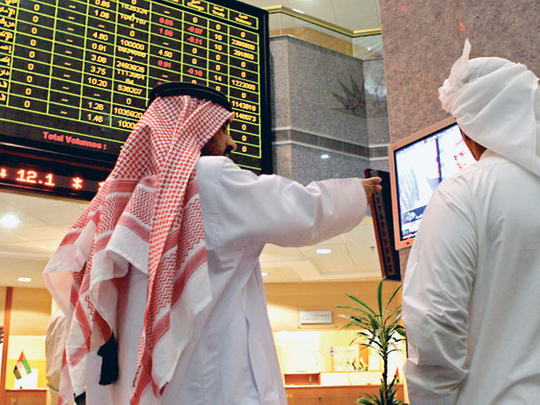
Abu Dhabi: The region's stock markets are likely to open lower and are expected to trade within a range in the week ahead as the financial markets around the world are beginning to price in another global recession and the likelihood of a sovereign debt default by Greece, say market experts.
"The credit default swap market is already pricing in a high probability of a Greek default. Leaving aside the macro-environment headwinds, the attention of the regional markets will be on the reporting season which kicks off with Qatar National Bank reporting its third-quarter earnings on October 5," Anastasios Dalgiannakis, head of trading at Dubai-based Mubasher Financial Services, told Gulf News.
Gary Dugan, chief investment officer - Private Banking at Emirates NBD said they remained cautious on international equities.
"We still believe that there could be 10 per cent to 15 per cent further downside. The growing realisation that a recession can't be avoided will lead to significant downgrades to corporate profit forecasts for 2012," said Dugan in his latest weekly research note.
Weakening markets
"Although the third-quarter corporate results due to be reported through October won't in themselves be that bad, we expect companies to allude to weakening markets," he added.
Dugan, however, said the local equities have performed relatively well.
"Most Mena [Middle East and North Africa] equities were cheap relative to international comparisons and the centre of the crisis is far from these shores. Undoubtedly, there will be some impact on economic activity in the region. However, with the oil price holding up relatively well and most governments still committed to supporting their economies through spending, the region can probably look forward to growth in 2012 while other parts of the world are struggling with recession," Dugan added.
US stocks ended their worst quarter since the depths of the 2008 credit crisis, crippled by Europe's debt debacle, a US credit downgrade and a sputtering global economy.
A steep slide on Friday closed out a fifth month of losses as weak economic data from China sparked fears of a global economic slowdown while investment bank Morgan Stanley plummeted on concerns about its exposure to European banks.
The S&P 500 index has lost more than 14 per cent this quarter and over 7 per cent in September alone. As of Thursday, Wall Street's deep downturn in the third quarter wiped out $2.2 trillion (Dh8.07 trillion) of the Wiltshire 5000 index the broadest measure of US stocks.
The markets in Europe and Asia have also been increasingly downbeat in recent weeks with investors fearing more downsides in the days ahead.












